36 Best Alcohol and Drug Rehabs in Montana 2025
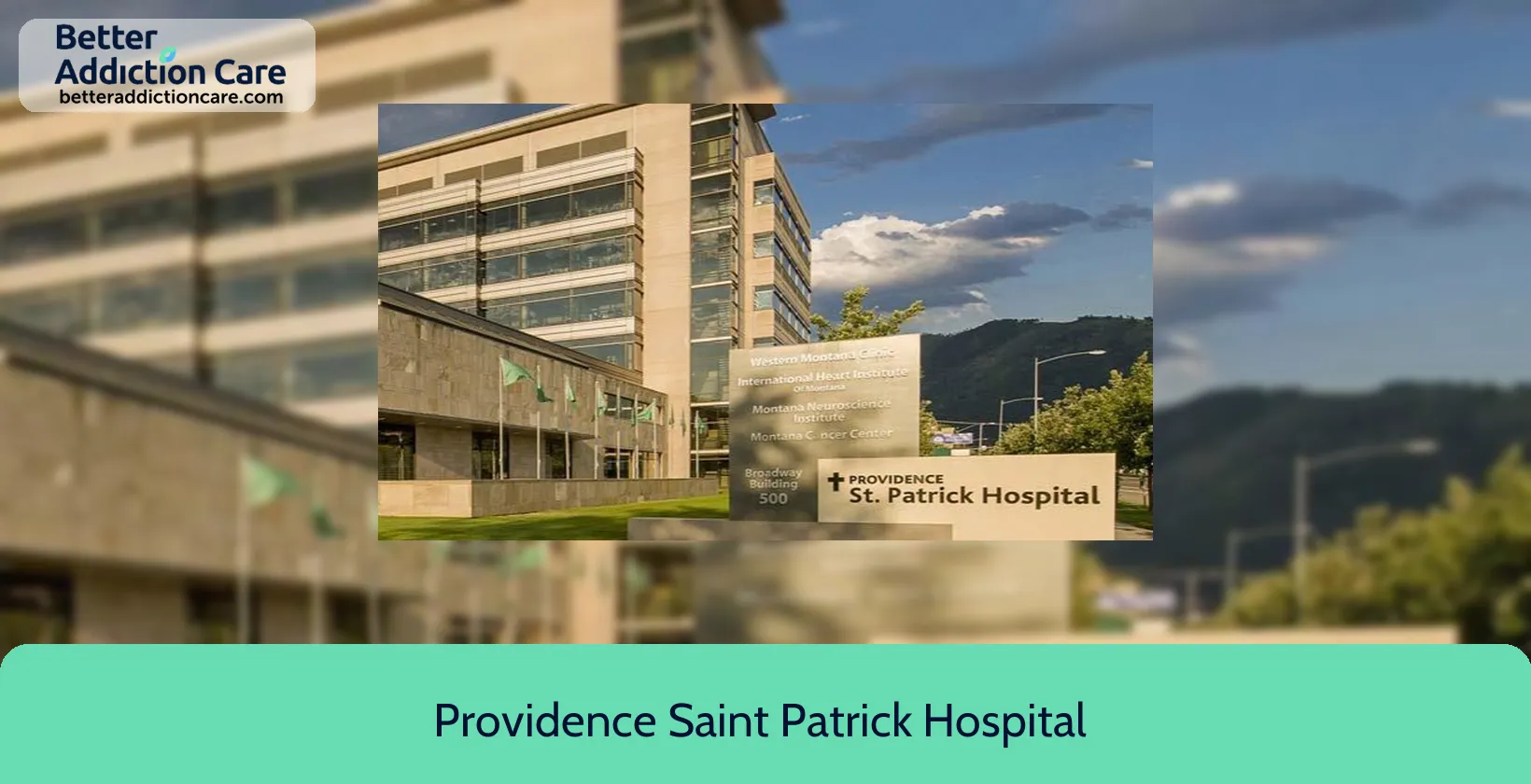
6.93
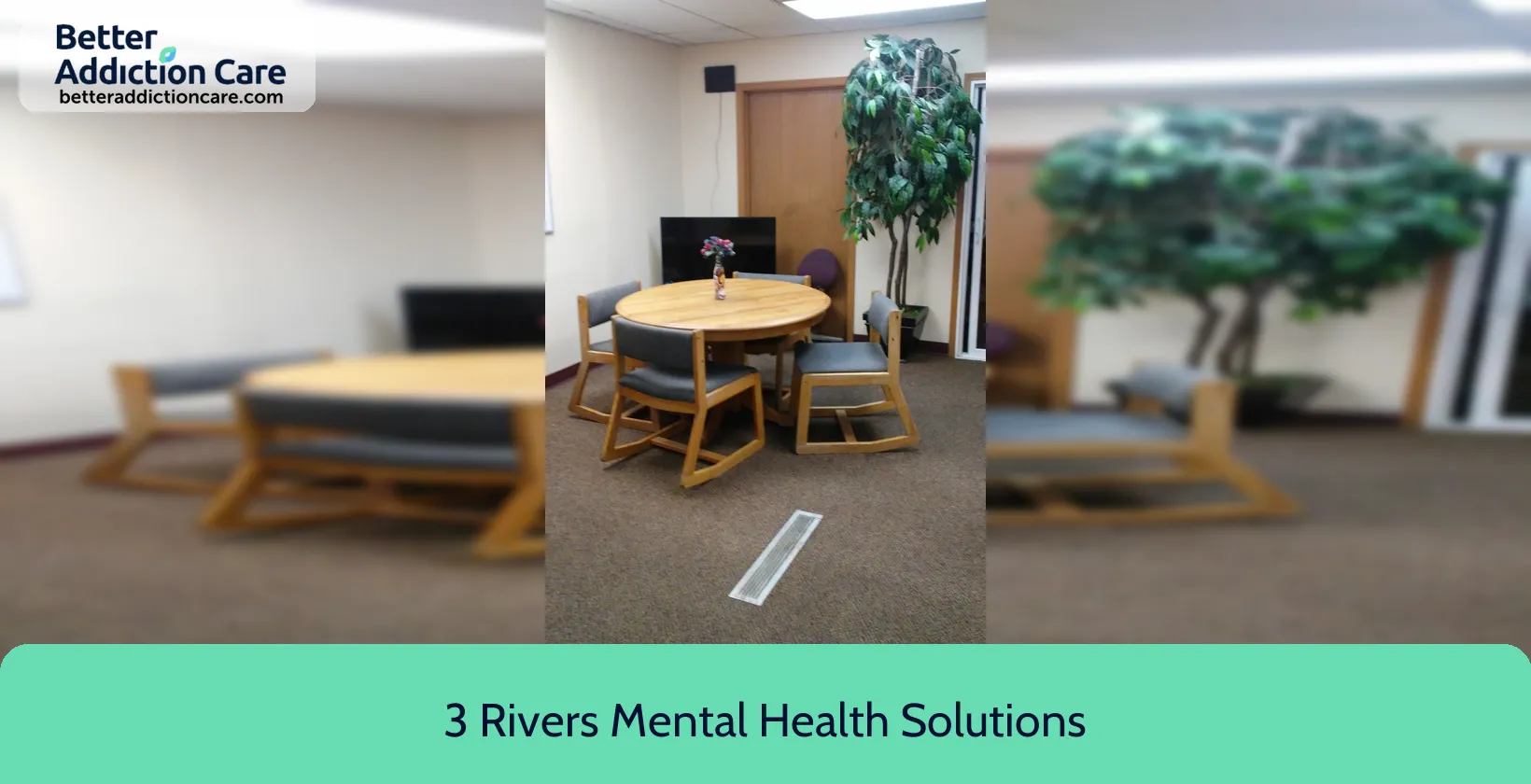
6.94

6.89
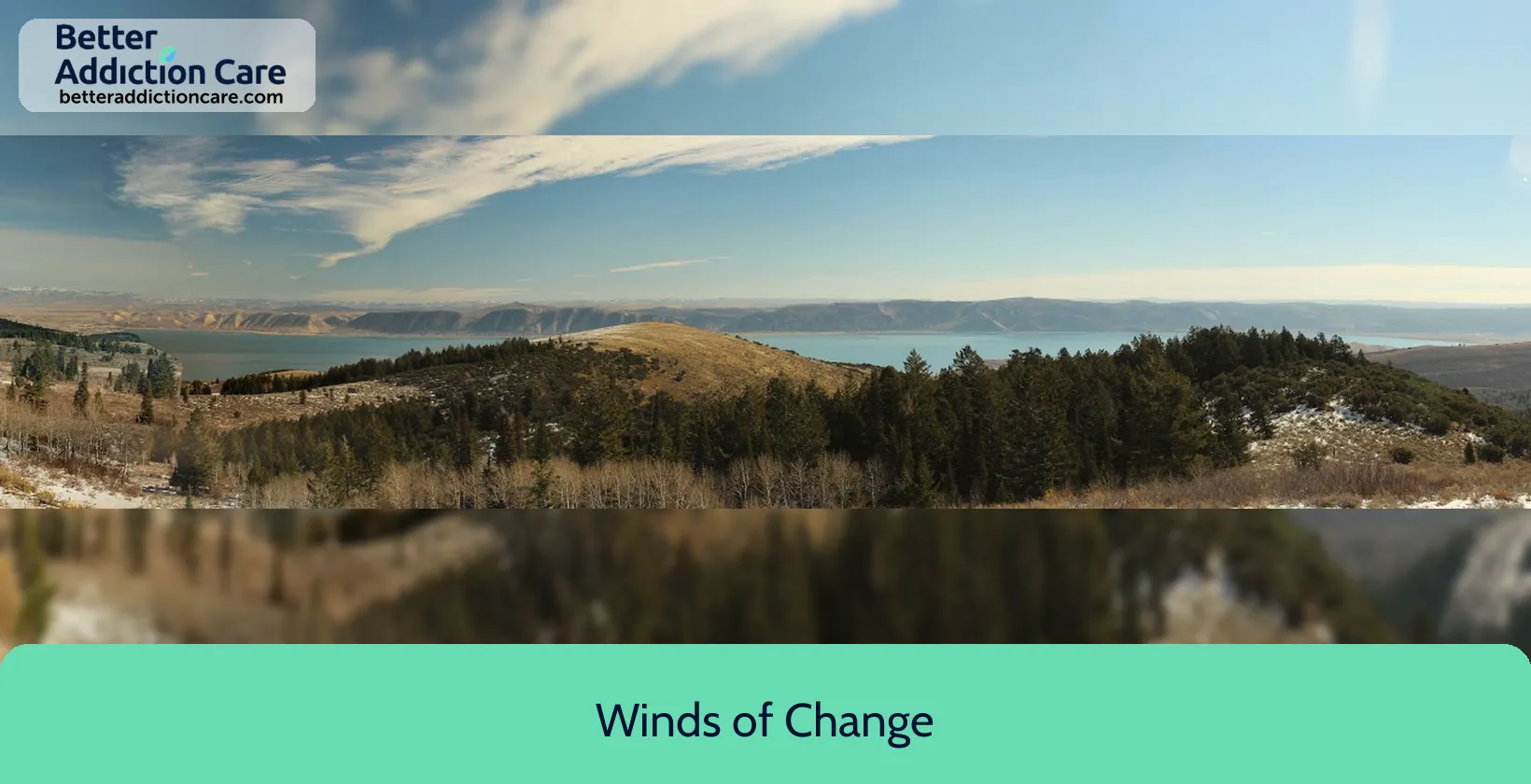
6.83
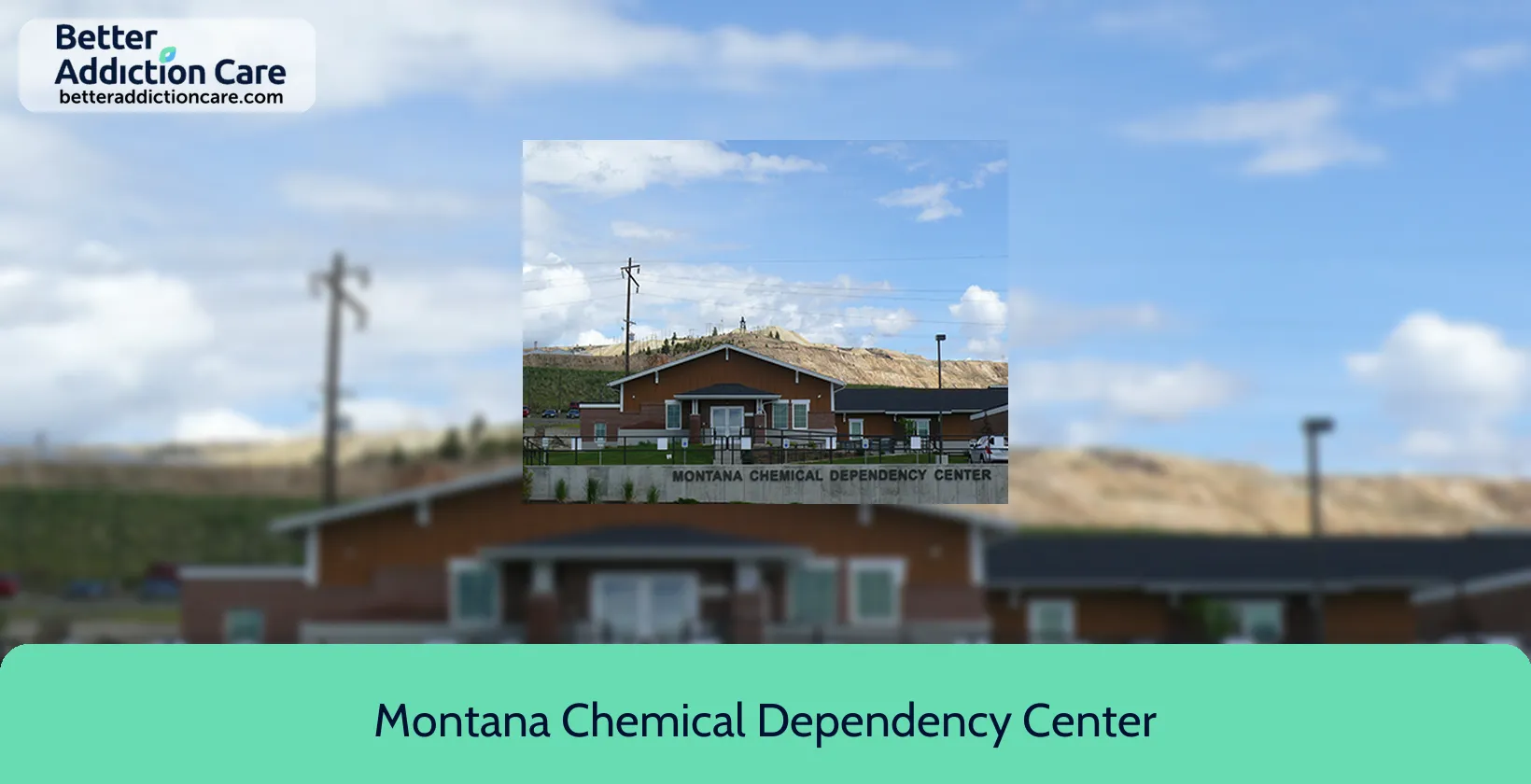
6.62
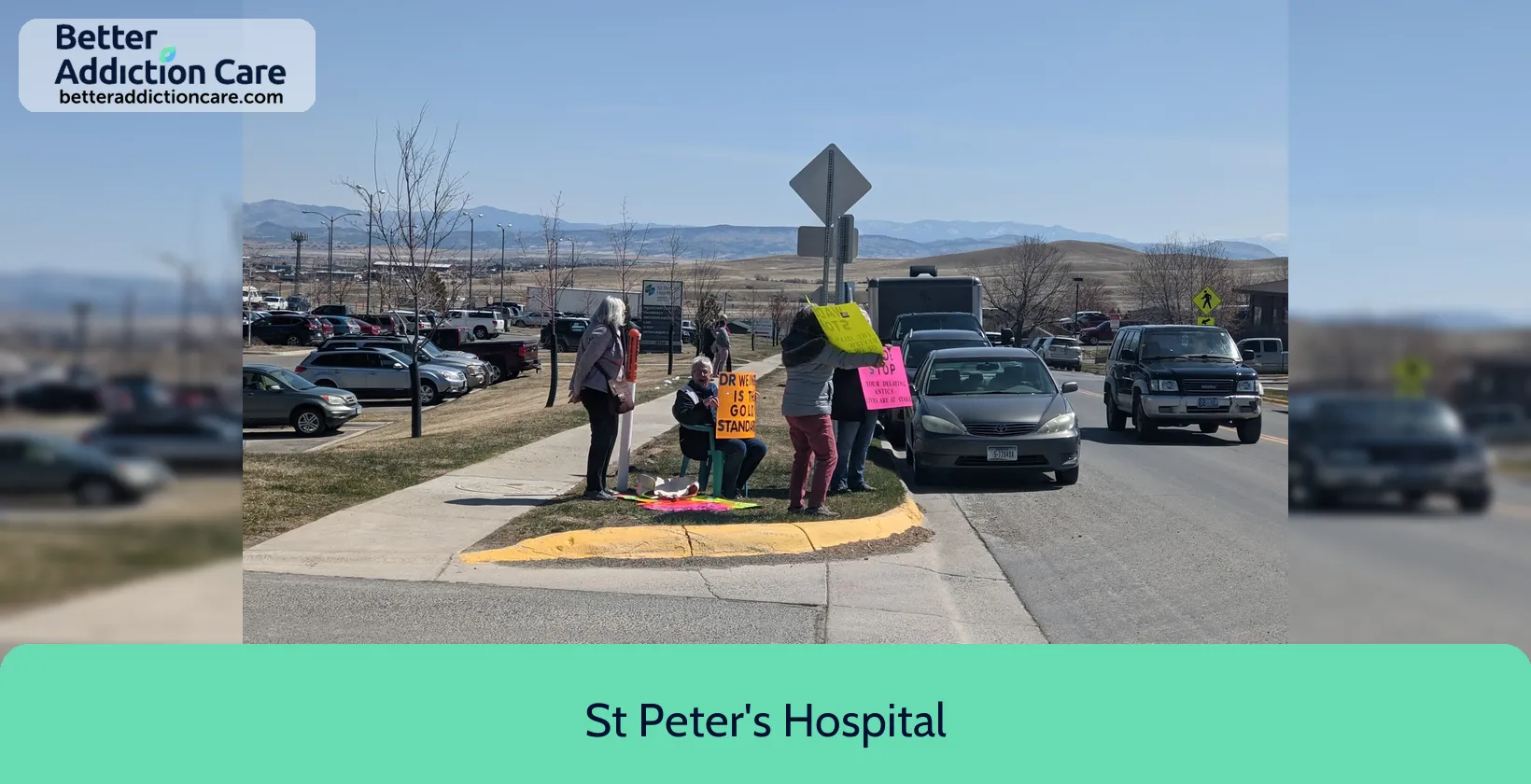
6.72
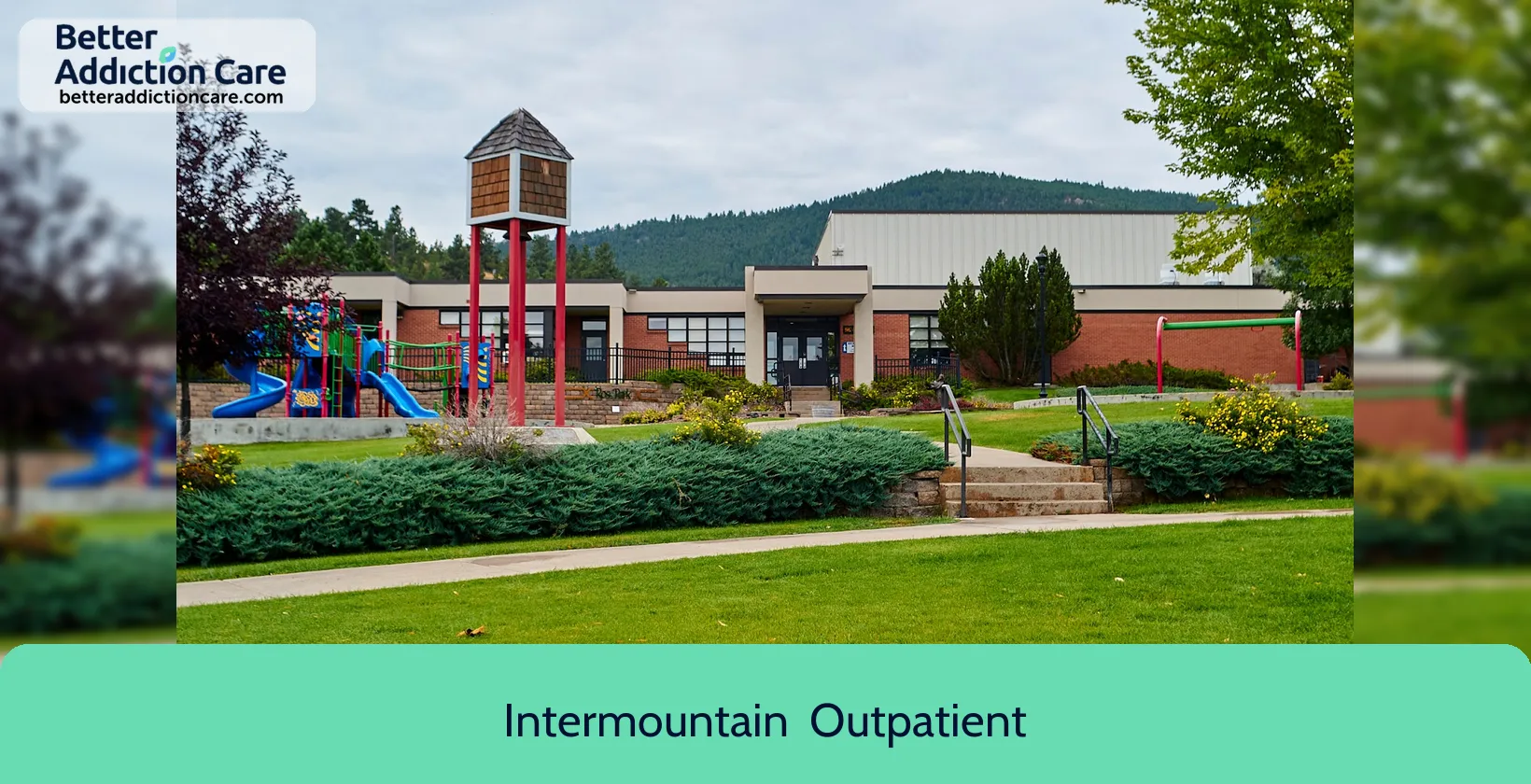
6.71
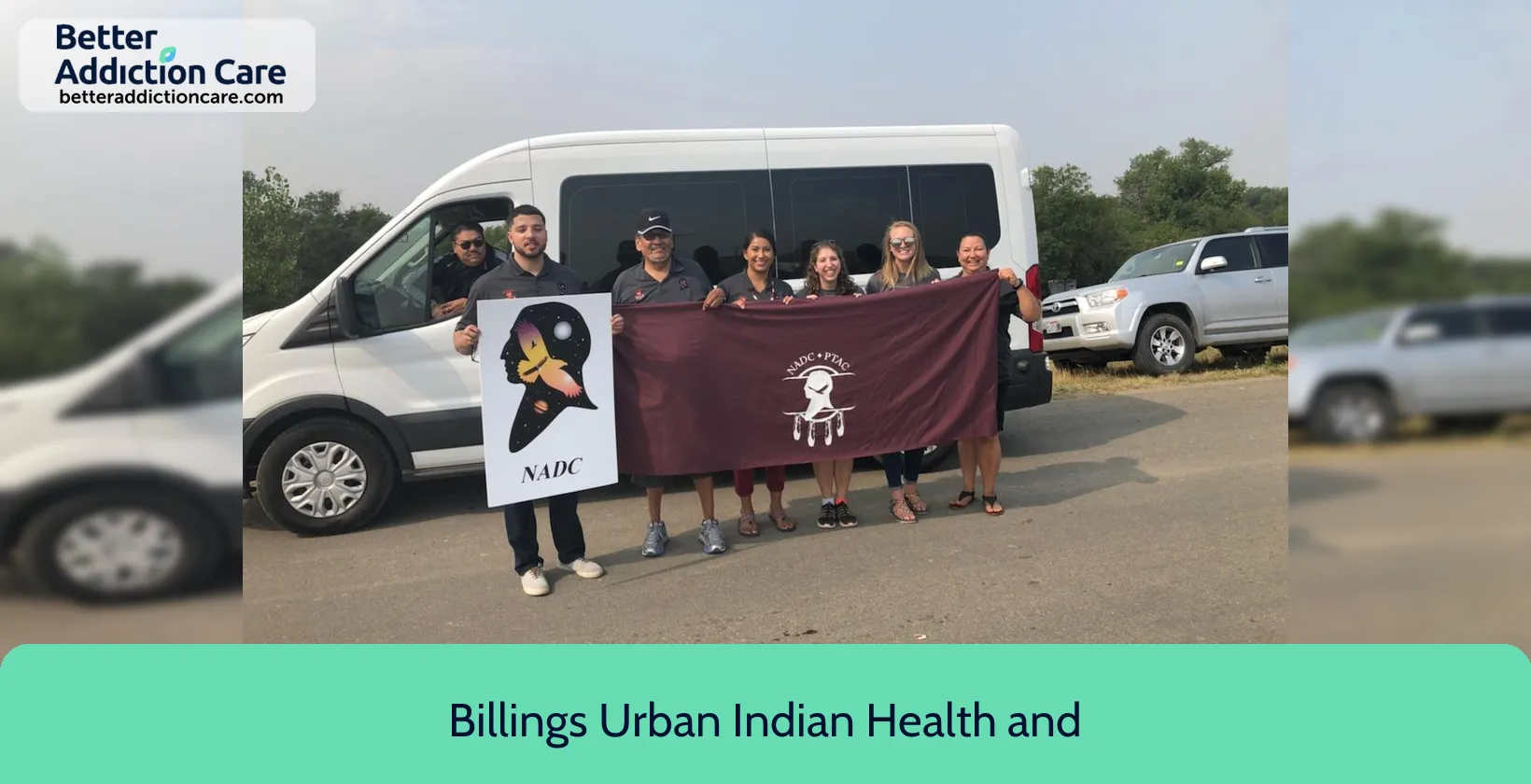
7.03

6.74
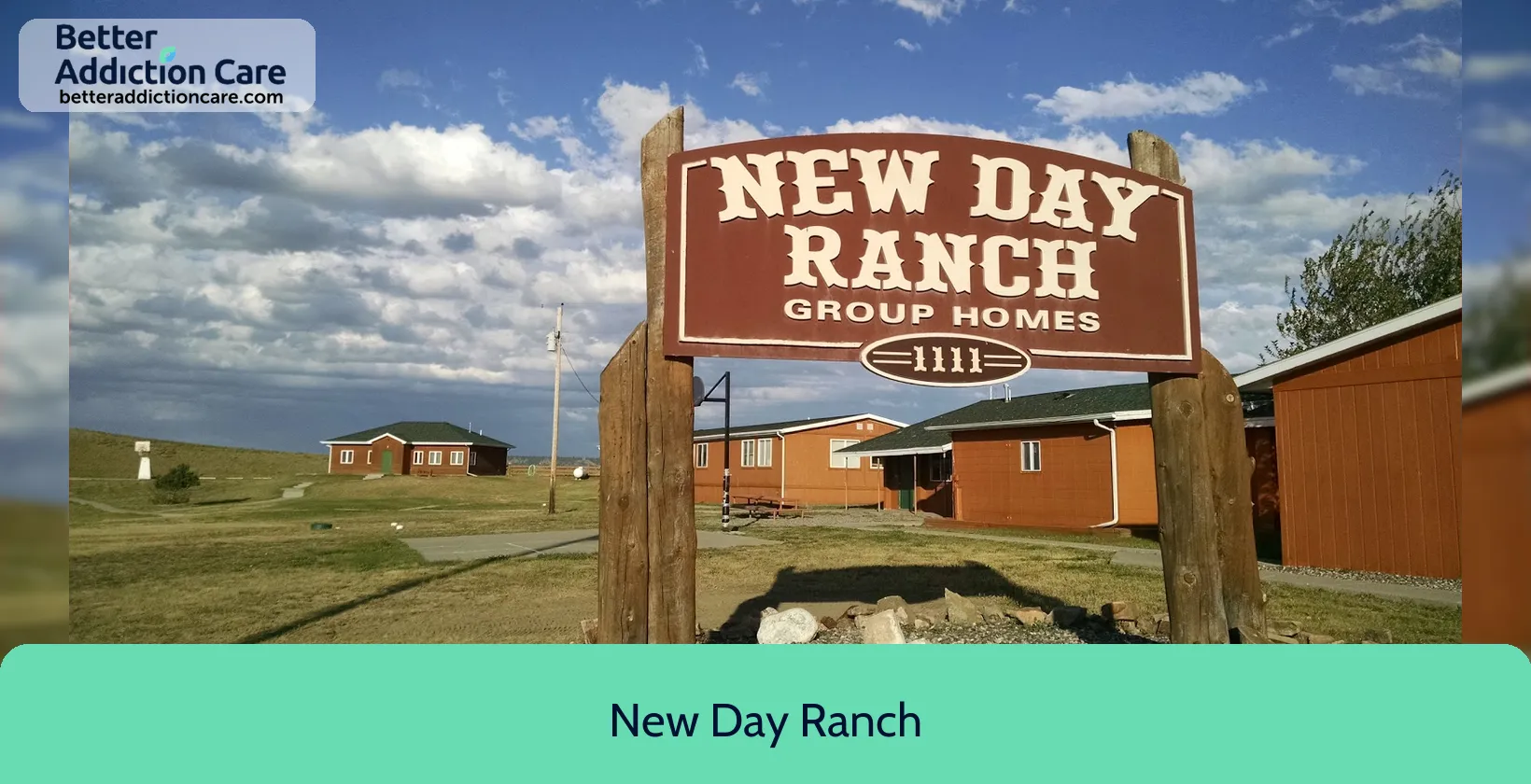
6.68
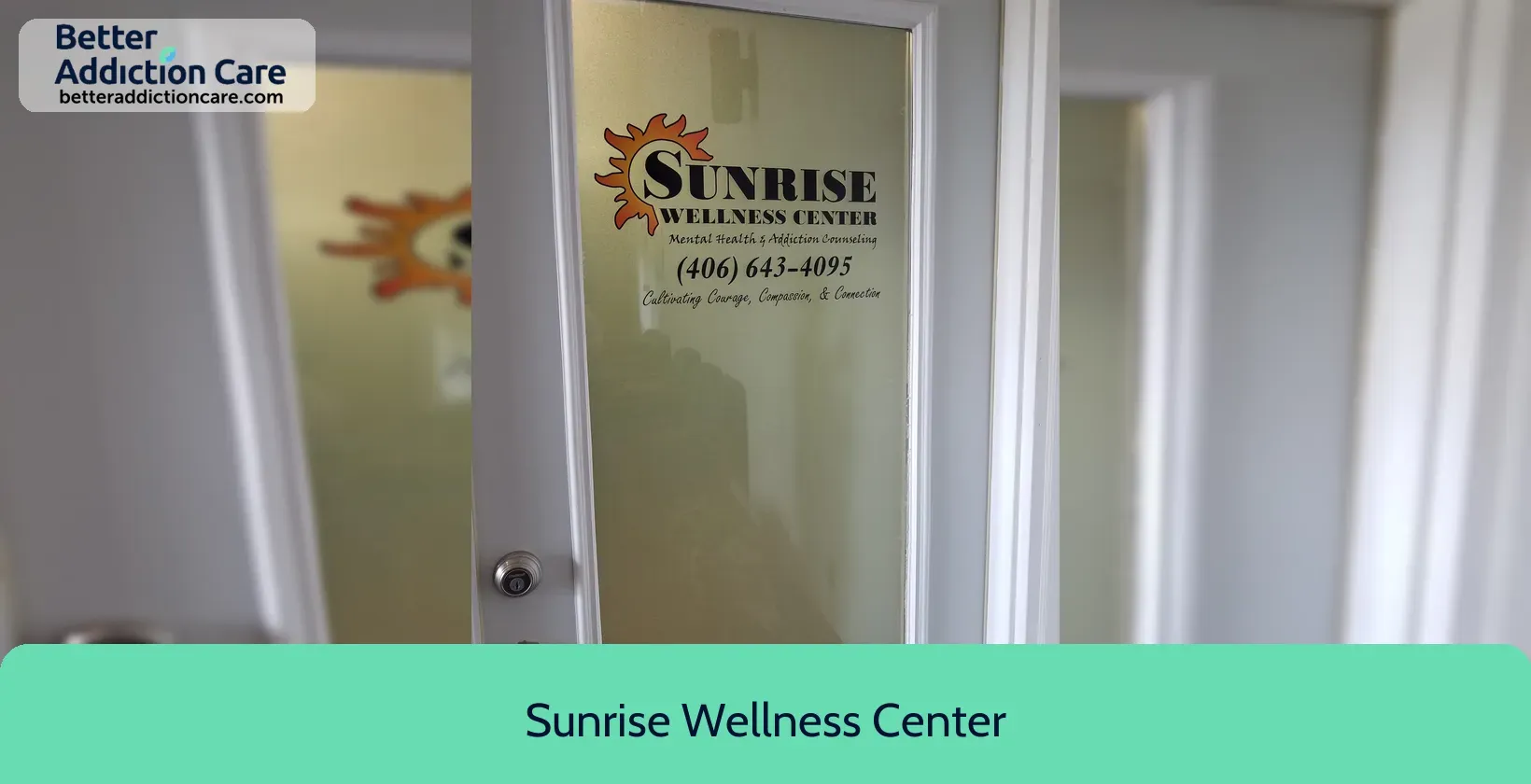
6.99
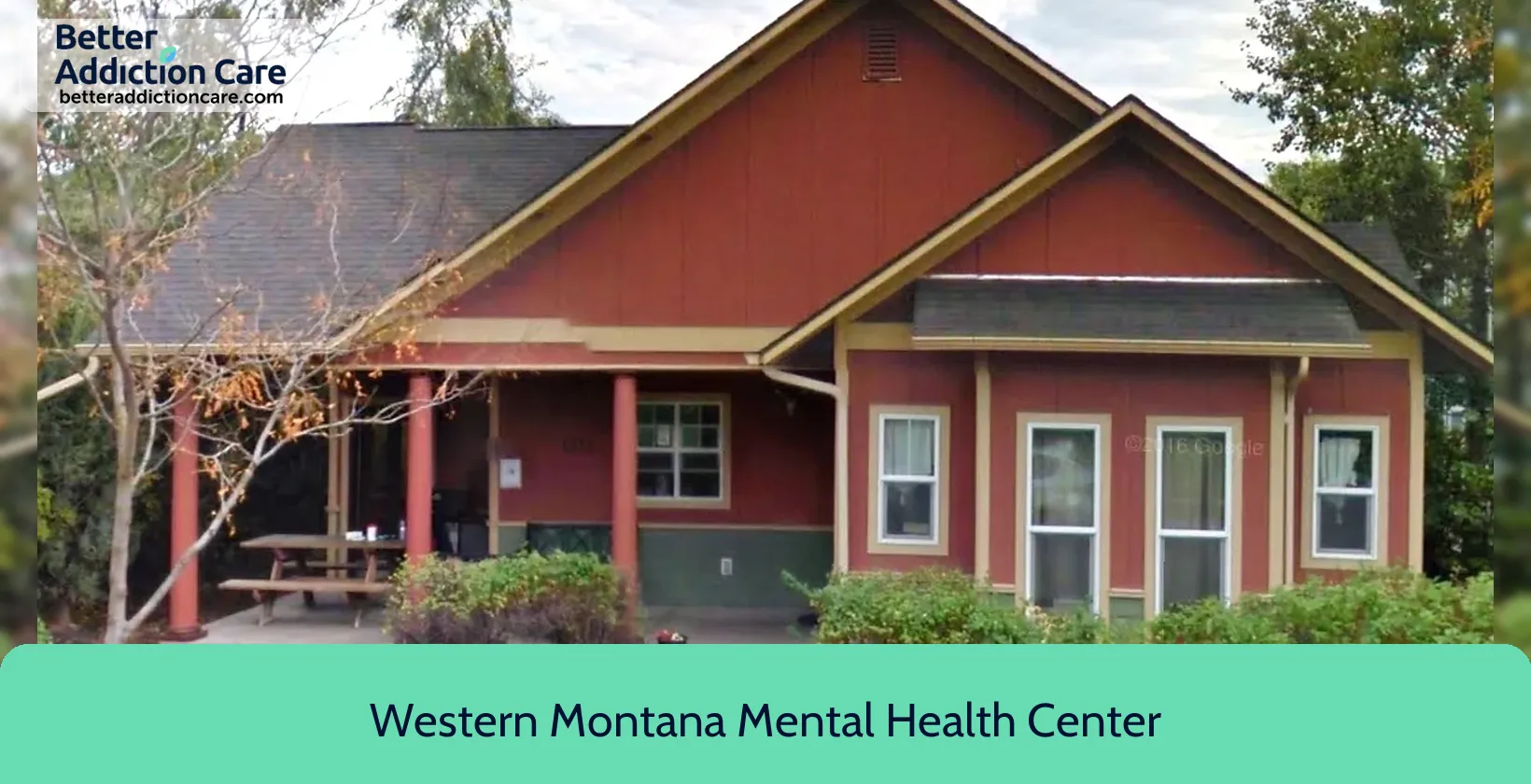
6.71
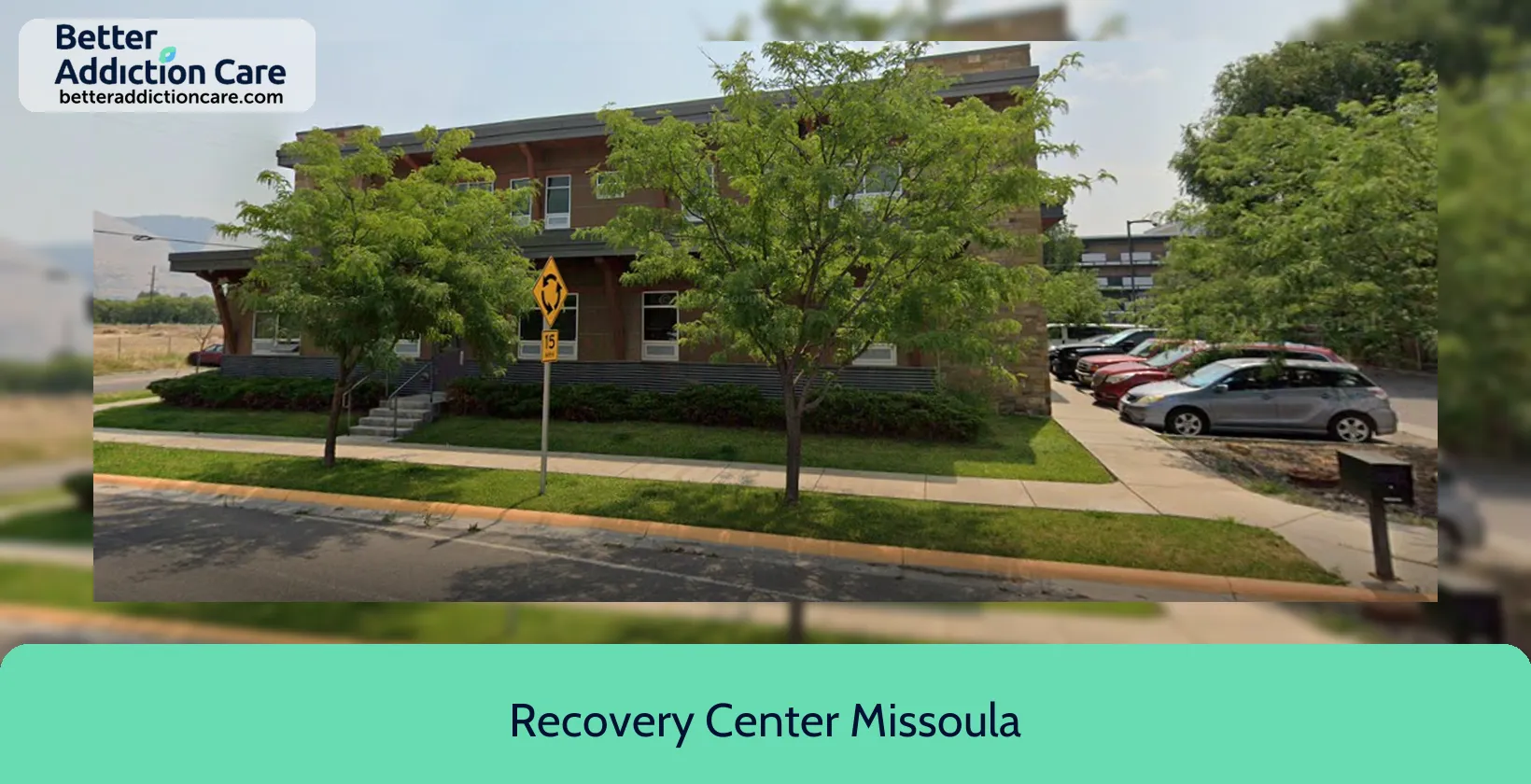
7.06

6.94

7.60

6.71

6.89

6.89

7.06

6.89

6.62

7.18

6.89

6.68

6.68

6.68

6.68

6.68

6.71

6.71

6.65

6.74

6.74

6.65

6.74

6.59
Local Rehabs in Montana
Common Questions About Rehab in Montana
Take a look at our FAQ. We've tried to fill it with all the answers you're looking for. And if not, contact us on (888) 349-0436.
Substance abuse and Mental Health facilities Report for Montana
44th
Cheapest To Most Expensive State Rank
93
Substance Abuse Facilities
4,537
Number of Patients Annually
4,260
Annual Enrollments
$6M
Spent on Outpatient Services (Million)
$1,627.00
Avg Outpatient Rehab Cost
249
Residential Admissions
$15M
Spent on Residential Treatment (Million)
$62,530.00
Residential Rehab Pay (Up To)
28
Total Patients
1
Free Drug Rehab Facilities
Alcoholism, Drug Abuse, Mental Health, and Treatment in Montana
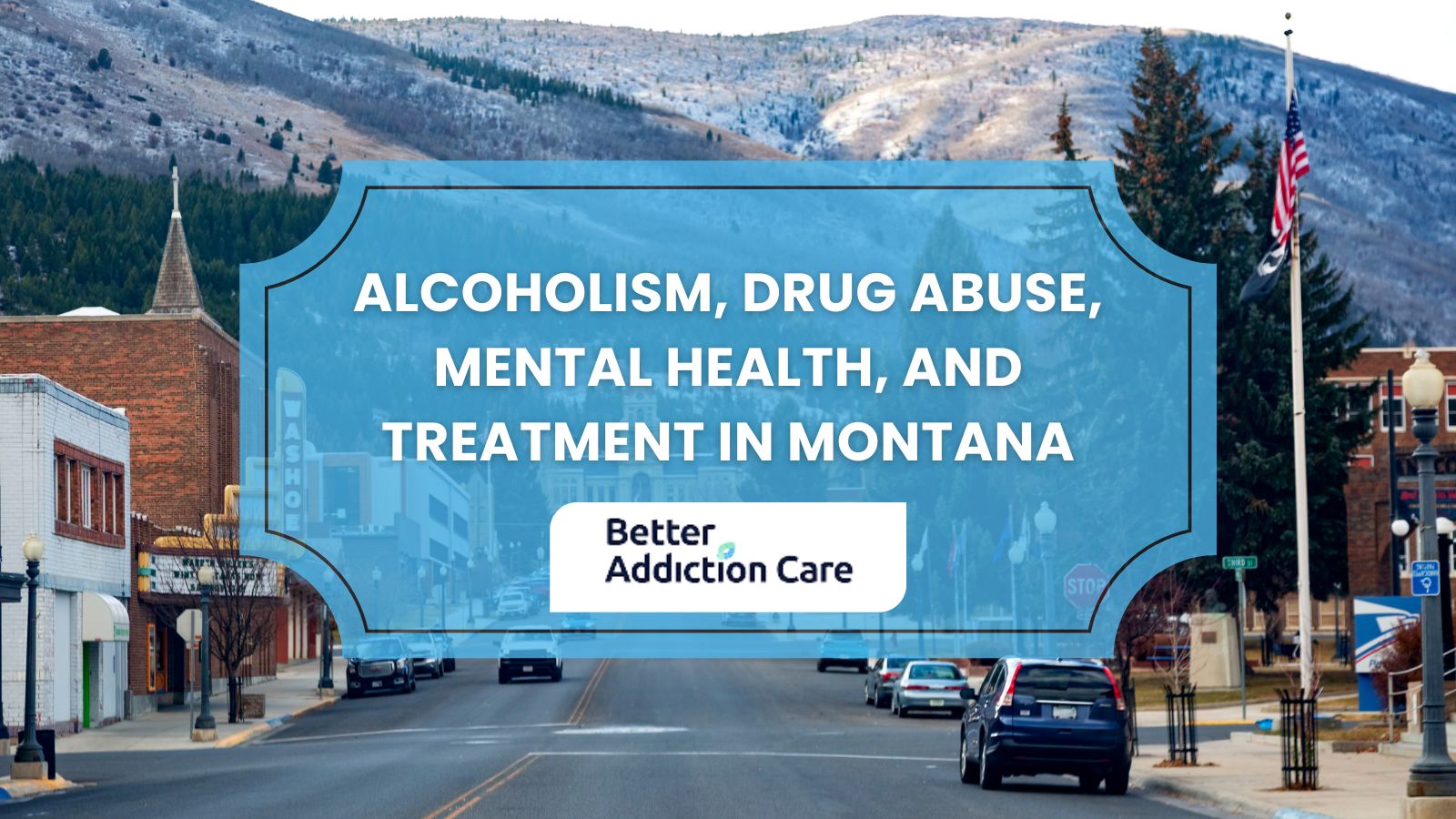
What are the main addictions people in Montana suffer from?
The main addictions people in Montana suffer from include:
- Alcohol Addiction: 67,000 individuals aged 12 and older, equating to 7.46% people, experienced AUD in the past year. 45,000 (67%) Men are more likely to develop Alcohol Addiction than 22,000 (33%) women. AUD contributes to over 20,000 hospital and emergency room visits annually in Montana, with total charges amounting to more than $150 million each year.
- Tobacco Addiction: 254,000 individuals aged 12 and older, 28.32% people, reported using tobacco products in the past month. 189,000 (74%) Men are more likely to use tobacco products than 67,000 (26%) women. Tobacco use is a leading cause of preventable diseases and deaths, including cancer, heart disease, and respiratory illnesses.
- Marijuana Addiction: 180,000 individuals aged 12 and older, or 20.06% people, used marijuana in the past year. 110,000 (61%) Men are more likely to use marijuana than 70,000 (38%) women. Regular marijuana use leads to dependence and has been associated with mental health issues such as anxiety and depression.
- Methamphetamine Addiction: 13,000 individuals aged 12 and older, equating to 1.43% people, reported methamphetamine use in the past year. 8,000 (61%) Men are more likely to use methamphetamine than 5,000 (38%) women. From 2021 to 2024, the age-adjusted rate of methamphetamine-related overdoses in Montana increased by 161%.
- Prescription Opioid Addiction: 6,000 individuals aged 12 and older, or 0.68% people, experienced prescription pain reliever addiction in the past year. 4,000 (66%) Men are more likely to misuse prescription opioids than 2,000 (33%) women. Montana's opioid overdose death rate nearly tripled from 2.7 deaths per 100,000 residents in 2019-2021 to 7.3 in 2022-2024.
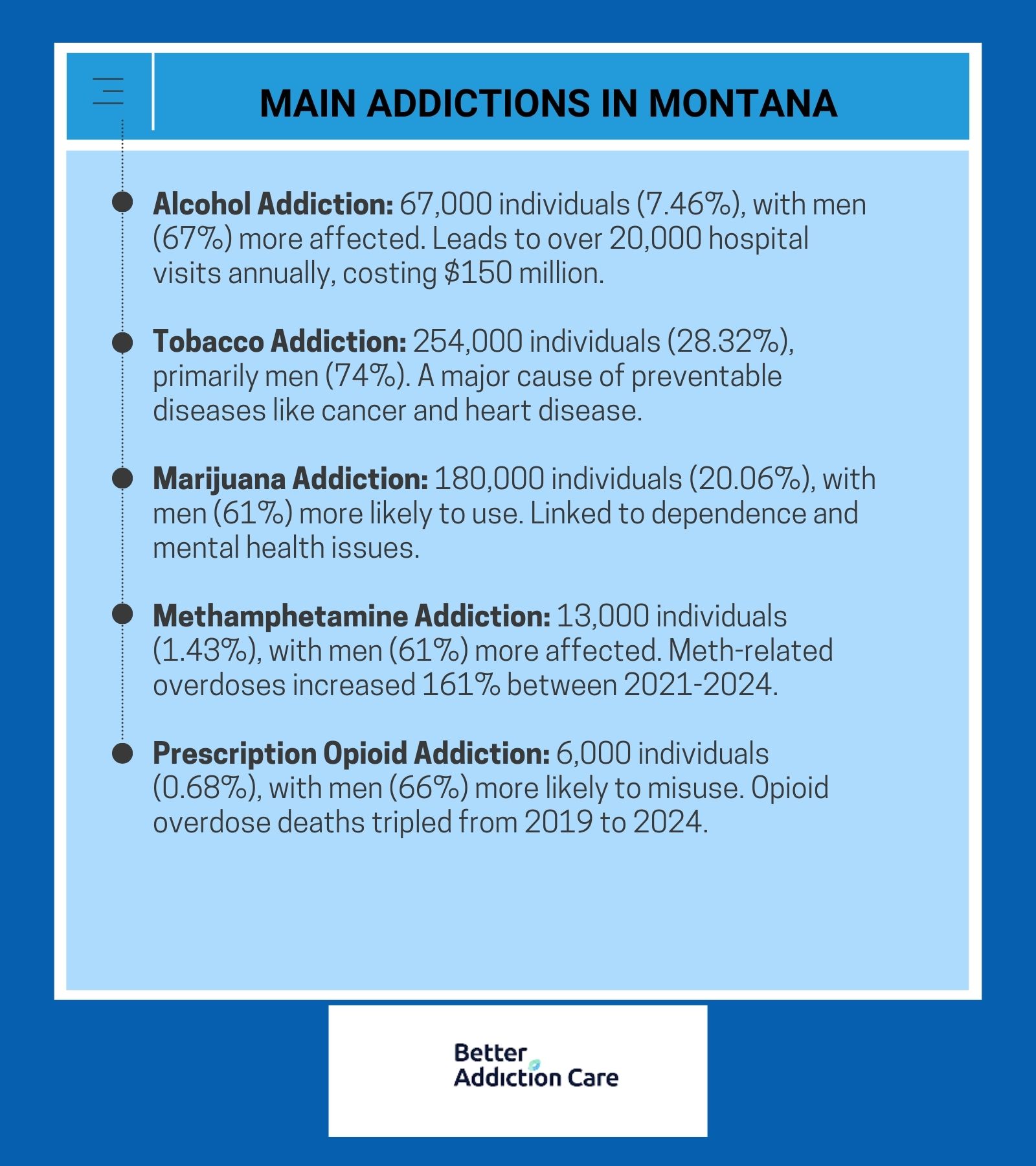
What is the cost of rehab centers in Montana?
The cost of rehab centers in Montana is $62,530, which equates to 94%. Inpatient rehab programs, lasting 30 days, average $694.78 per day, totaling $20,843 (31%) without insurance coverage. Outpatient programs, over a similar duration, cost $54.23 per day, amounting to $1,627 (2.4%) without insurance.
The type of addiction influences treatment costs of rehab centers. For instance, medical detoxification, often required for alcohol or opioid dependencies, add significant expenses. The average cost of medical detox in Montana is $154,159, which is 146.5% higher than the standard inpatient rehab cost.
Montana's median household income is $66,341. The cost of rehab centers in Montana consumes 94% of annual income, while medical detox accounts for 232.3%. This indicates that such treatments pose a substantial financial burden for many households.
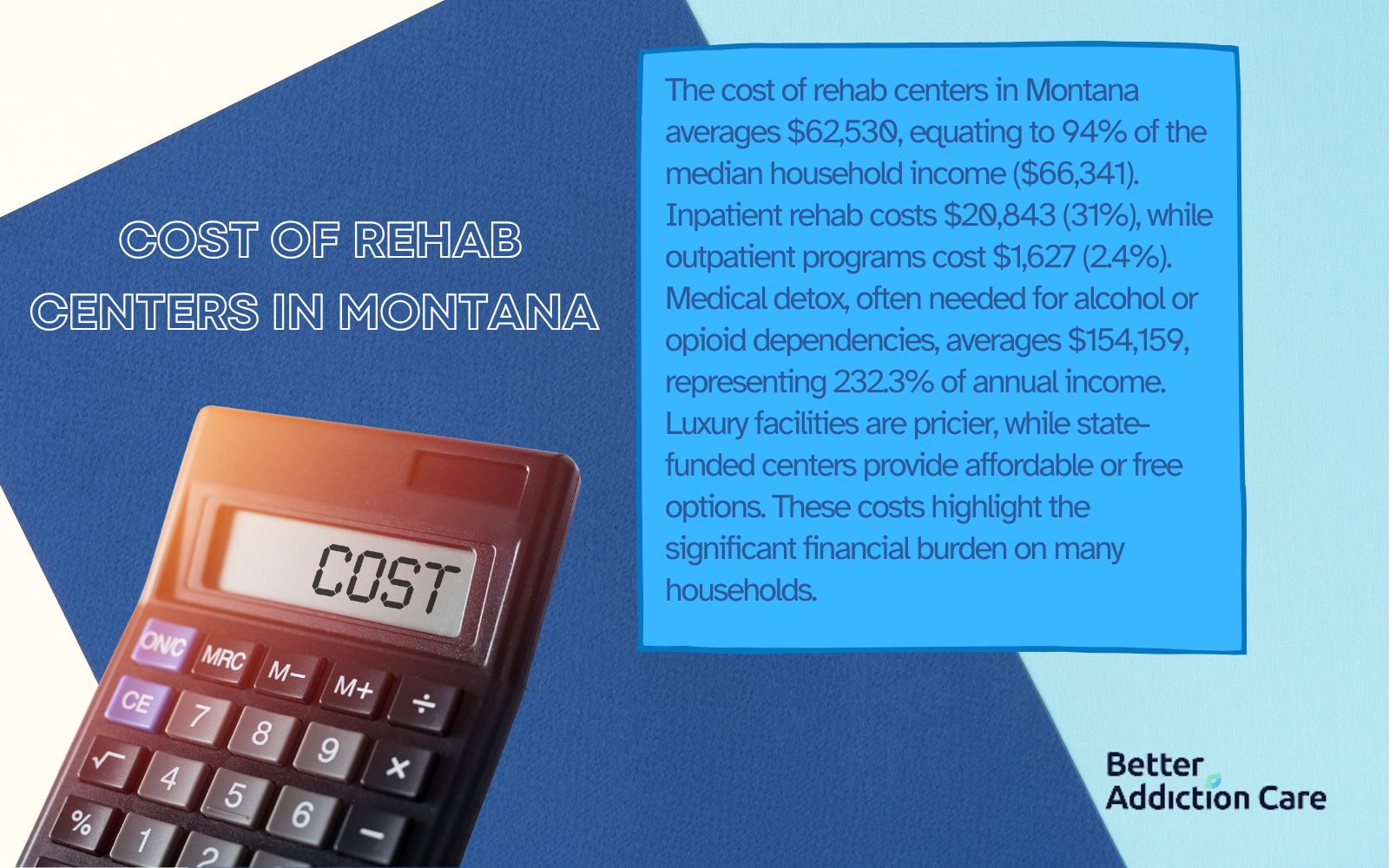
The cost of rehab centers in Montana also vary based on the type of rehab center. Luxury facilities with specialized services tend to be more expensive, whereas state-funded or non-profit centers offer more affordable or even free options.
What is the cost of LGBTQ+ rehab centers in Montana?
The cost of LGBTQ+ rehab centers in Montana is $60,530, which equates to 91%. Inpatient rehab programs, lasting 30 days, average around $694.78 per day, totaling $20,843 (31%) without insurance coverage. Outpatient programs, over a similar duration, cost $54.23 per day, amounting to $1,627 (2.4%) without insurance.
The type of addiction influences treatment costs of LGBTQ+ rehab centers. For instance, medical detoxification, often required for alcohol or opioid dependencies, add significant expenses. The average cost of medical detox in Montana is $154,159, which is 146.5% higher than the standard inpatient rehab cost.
Montana's median household income is $66,341. The cost of LGBTQ+ rehab centers in Montana consumes 91% of annual income, while medical detox accounts for 232.3%. This indicates that such treatments pose a substantial financial burden for many households.
The cost of LGBTQ+ rehab centers in Montana also vary based on the type of rehab center. Luxury facilities with specialized services tend to be more expensive, whereas state-funded or non-profit centers offer more affordable or even free options.
What is the cost of Faith-Based rehab centers in Montana?
The cost of Faith-Based rehab centers in Montana is $61,900, which equates to 93 %. Inpatient rehab programs, lasting 30 days, average around $694.78 per day, totaling about $20,843 (31%) without insurance coverage. Outpatient programs, over a similar duration, cost $54.23 per day, amounting to $1,627 (2.4%) without insurance.
The type of addiction influences treatment costs of Faith-Based rehab centers. For instance, medical detoxification, often required for alcohol or opioid dependencies, add significant expenses. The average cost of medical detox in Montana is $154,159, which is 146.5% higher than the standard inpatient rehab cost.
Montana's median household income is $66,341. The cost of Faith-Based rehab centers in Montana consumes 93% of annual income, while medical detox accounts for 232.3%. This indicates that such treatments pose a substantial financial burden for many households.
The cost of Faith-Based rehab centers in Montana also vary based on the type of rehab center. Luxury facilities with specialized services tend to be more expensive, whereas state-funded or non-profit centers offer more affordable or even free options.
What is the cost of Men-Only rehab centers in Montana?
The cost of Men-Only rehab centers in Montana is $58,930, which equates to 88%. Inpatient rehab programs, lasting 30 days, average $694.78 per day, totaling $20,843 (31%) without insurance coverage. Outpatient programs, over a similar duration, cost $54.23 per day, amounting to about $1,627 (2.4%) without insurance.
The type of addiction influences treatment costs of Men-Only rehab centers. For instance, medical detoxification, often required for alcohol or opioid dependencies, add significant expenses. The average cost of medical detox in Montana is $154,159, which is 146.5% higher than the standard inpatient rehab cost.
Montana's median household income is $66,341. The cost of Men-Only rehab centers in Montana consumes 88% of annual income, while medical detox accounts for 232.3%. This indicates that such treatments pose a substantial financial burden for many households.
The cost of Men-Only rehab centers in Montana also vary based on the type of rehab center. Luxury facilities with specialized services tend to be more expensive, whereas state-funded or non-profit centers offer more affordable or even free options.


